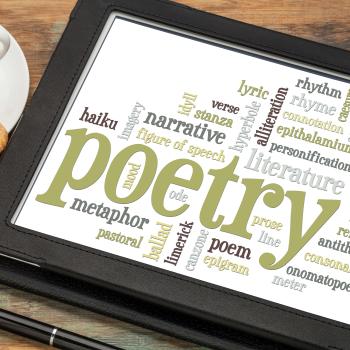After listening to and discussing the story Score One for the Sloths, primary students research the sloth. Students use a variety of resources, including an information wheel graphic organizer.

Listen, Look, and Learn: An Information-Gathering Process

Grades
|
Writing and Assessing an Autobiographical Incident
3 - 5
Lesson Plan
| Unit
Students build upon their knowledge of biographies to write their own autobiographical incident. After going through a process of revision, they use a rubric to assess their work.

Grades
|
Memories Matter: The Giver and Descriptive Writing Memoirs
6 - 8
Lesson Plan
| Standard Lesson
Using The Giver, students discuss the importance recorded history. This provides context for descriptive writing of students' own history in a lesson that integrates personal writing, research, and literary response.

Grades
|
Leading to Great Places in the Elementary Classroom
3 - 5
Lesson Plan
| Standard Lesson
Students examine great leads in children's literature before writing or revising a lead in their own writing.

Grades
|
Developing a Definition of Reading through Investigation in Middle School
6 - 8
Lesson Plan
| Standard Lesson
Students collaboratively interact with a variety of texts as they define reading and develop their own Reader's Profiles modeled after online social networking sites.

Grades
|
Creative Communication Frames: Discovering Similarities between Writing and Art
6 - 8
Lesson Plan
| Standard Lesson
Graphic organizers assist the development of comparative vocabulary and generate discussions of analogy and metaphor in art as students go on a real or virtual tour of an art gallery.

Grades
|
Sentence Quest: Using Parts of Speech to Write Descriptive Sentences
K - 2
Lesson Plan
| Standard Lesson
Students learn about sentences by listing verbs, nouns, and adjectives. They use word cards to create descriptive sentences and work in groups to create the longest sentences they can.

Grades
|
Name Talk: Exploring Letter-Sound Knowledge in the Primary Classroom
K - 1
Lesson Plan
| Standard Lesson
Students demonstrate their letter/sound knowledge by working with name cards and sharing observations about their classmates' names, giving teachers an opportunity to assess knowledge in a meaningful context.

Grades
|
Developing a Living Definition of Reading in the Elementary Classroom
3 - 5
Lesson Plan
| Standard Lesson
Using the guiding question, "What is reading?" students interact with a variety of texts as they uncover the skills necessary to interact with texts and develop a definition of reading.

Grades
|
Fairy Tale Autobiographies
5 - 9
Lesson Plan
| Standard Lesson
Students read and analyze fairy tales from several cultures, identifying common elements. Choosing common situations, students write original fairy tales, using picture books as models and a peer review process.

Grades
|
Show What You Know: Read, Write and Solve Math Problems
2 - 3
Lesson Plan
| Minilesson
Informational texts, iPads, and interactive games, oh, my! Help students journey through multimodal texts to identify and solve real-world mathematics problems using writing and apps.

Grades
|
Poetry Plus! Creating 21st Century Poems with Web Tools
3 - 5
Lesson Plan
| Minilesson
This lesson encourages students to immerse themselves in poetry as they share their original poems orally and digitally with published poets and peers nationwide.

Grades
|
Reading Movies and TV: Learning the "Language" of Moving-Image Texts
5 - 12
Lesson Plan
| Minilesson
Introduce students to the idea that movies and TV have their own language and grammar, which gives them special ways of telling their stories.

Grades
|
Blogging in the Primary Grades? Yes, Indeed!
2 - 5
Lesson Plan
| Standard Lesson
Give students an authentic reason to read and write by researching blogs written by their peers around the world and then writing their own.

Grades
|
Create a Great Future: STEM Career Research Using Close Reading
6 - 12
Lesson Plan
| Minilesson
What if students could see the relevance of their school curriculum to real-world, interesting, STEM-related careers? Let's help them create a great future!

Grades
|
Writing Free Verse in the "Voice" of Cesar Chavez
6 - 8
Lesson Plan
| Standard Lesson
Poetry and politics combine in this lesson where students write a free verse poem in the voice of Cesar Chavez.

Grades
|
Going on a Shape Hunt: Integrating Math and Literacy
K - 2
Lesson Plan
| Standard Lesson
Students participate in a scavenger hunt for shapes; reading, writing, and discussion of shapes encourage literacy and math skills.

Grades
|
Word Maps: Developing Critical and Analytical Thinking About Literary Characters
9 - 12
Lesson Plan
| Standard Lesson
Students read "After Twenty Years" by O. Henry, use a word map to identify characters' qualities or traits, discuss the characters' feelings and actions, and reflect upon these in journals.

Grades
|
Telling a Story About Me: Young Children Write Autobiographies
K - 2
Lesson Plan
| Unit
Students tell their life stories in this lesson about autobiographies based on family photographs.

Grades
|
Readers Theatre With Jan Brett
1 - 2
Lesson Plan
| Standard Lesson
Students in grades 1-2 use Jan Brett's Hedgie's Surprise for a Readers Theatre experience.